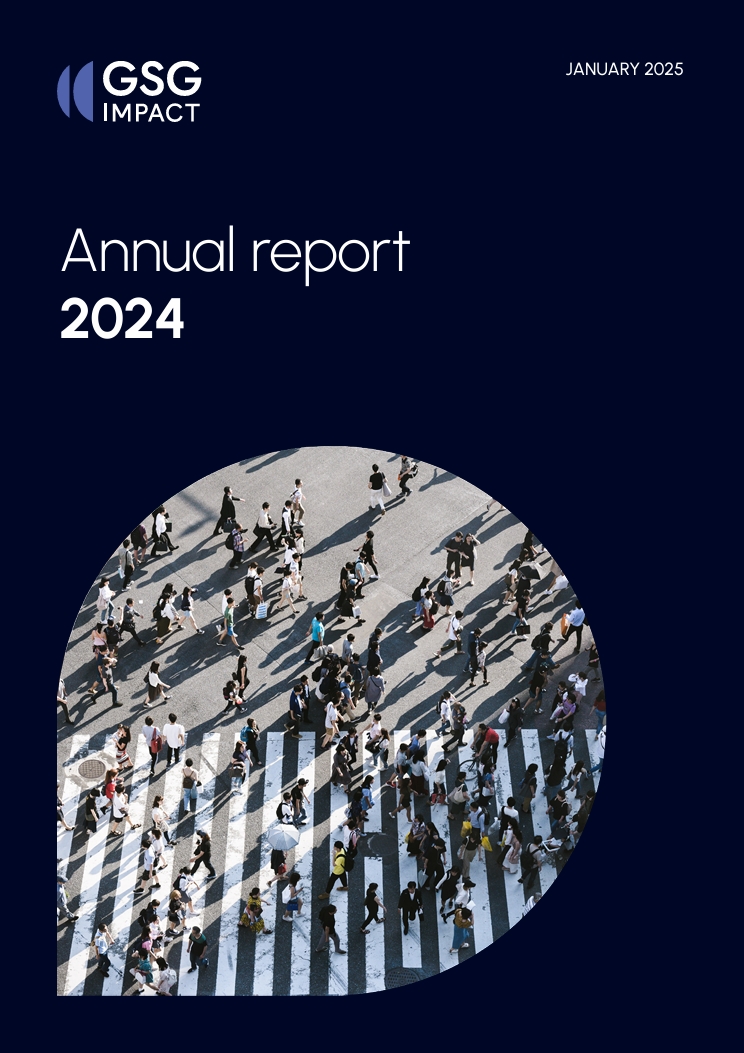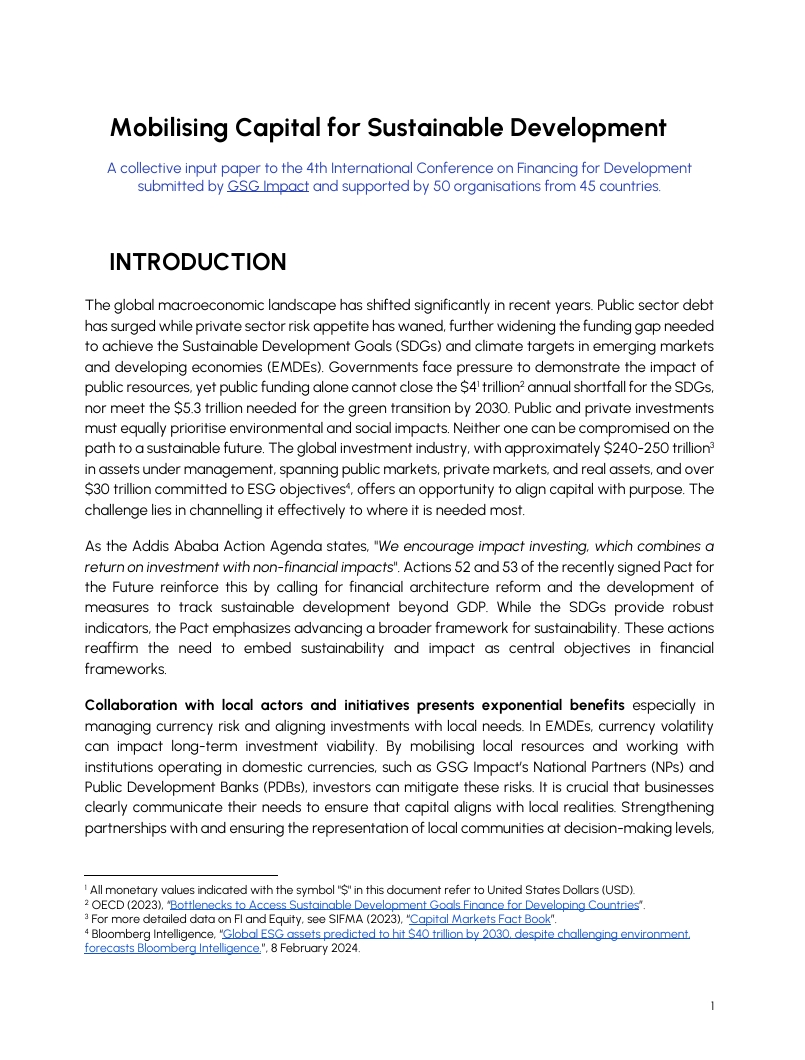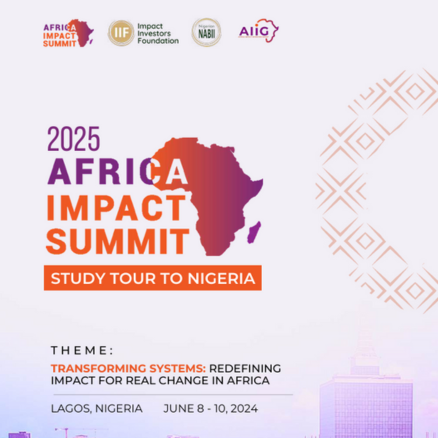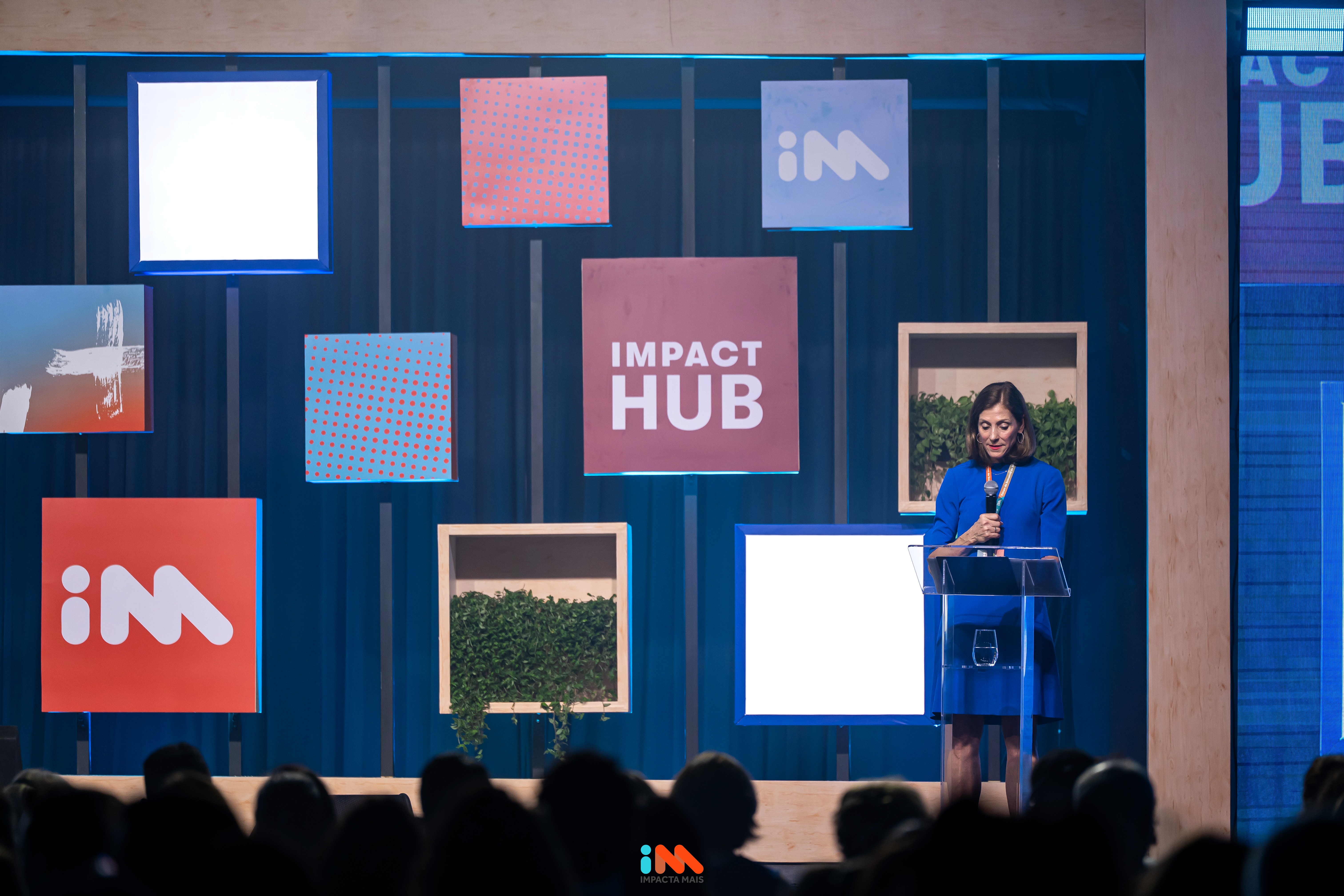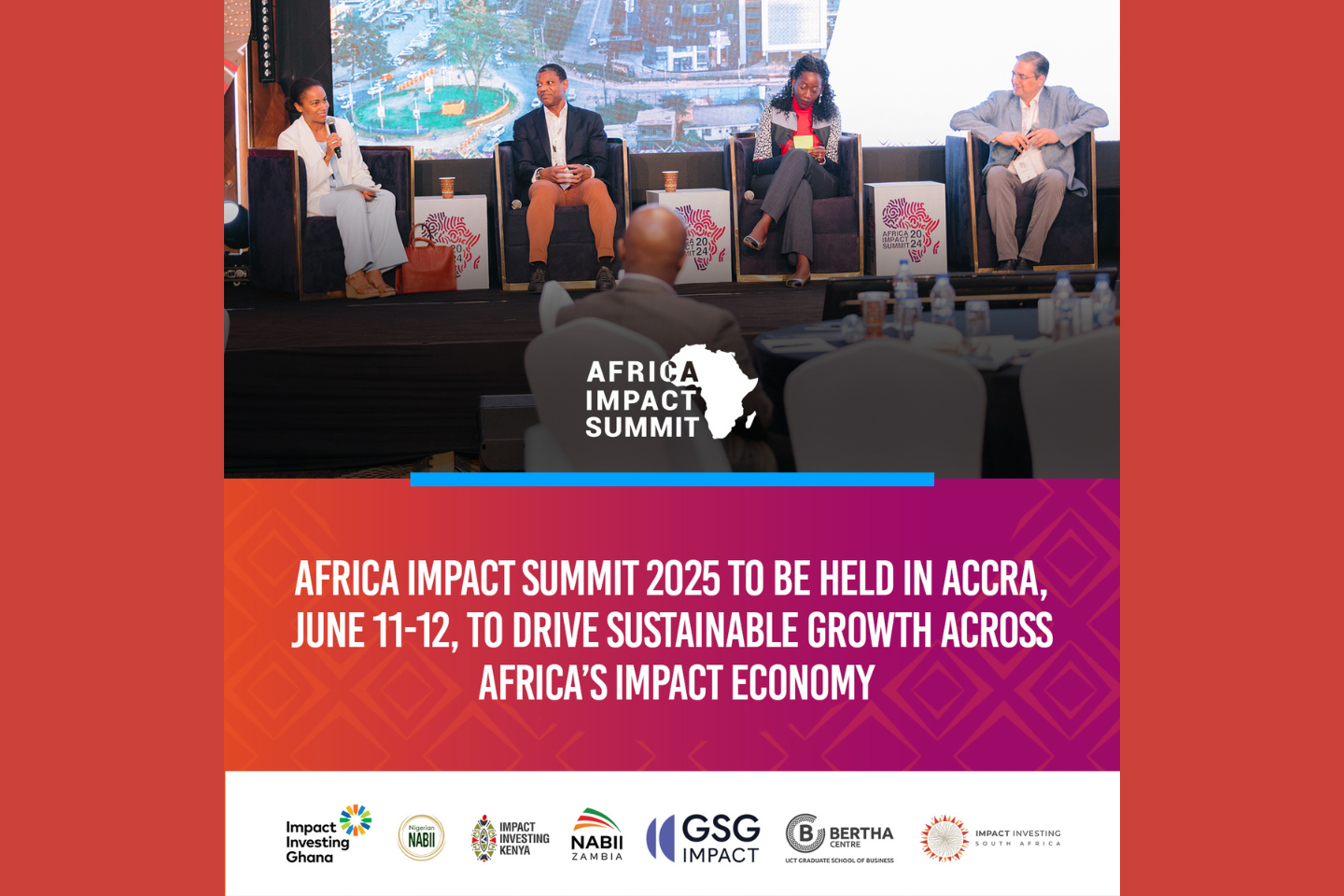
4 solutions to mobilise capital for the SDGs in emerging markets
Key recommendations from the GSG Impact Summit, October 2–3, 2023
The numbers are going the wrong way
Only 12% of SDGs are on track, whereas the total financing gap for the SDGs has increased to $4Tr USD per year, most of which is needed in EMs. The total climate finance gap is around $5Tr USD per annum, and only 13% of current climate finance is flowing into emerging markets (EMs). Overall, only 4% of finance flows to EMs.
If we want a world which is sustainable and just, we need to shift gears in addressing issues that prevent EMs from harnessing their full potential. We all have a role to play here.
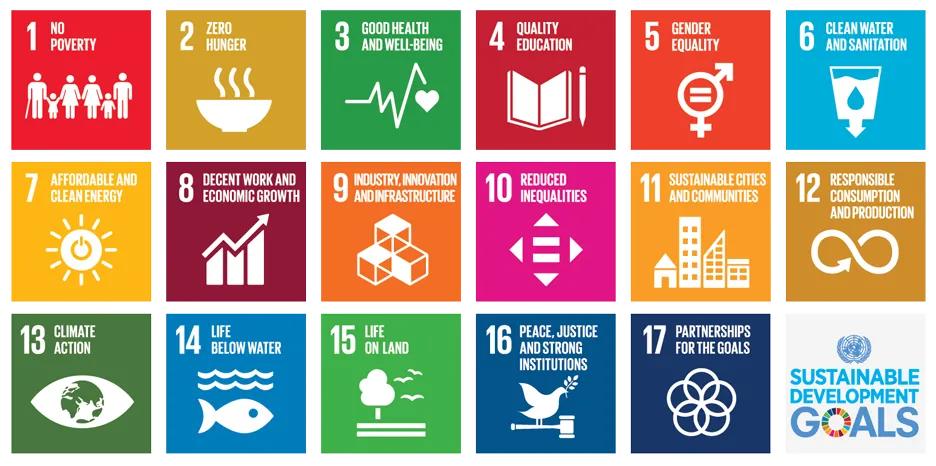
We need to create incentives at all levels of the investment chain
It starts at the beginning: with entrepreneurs
It’s been demonstrated that public subsidies increase the likelihood of start-ups raising VC investments. We know what good looks like in terms of business development services. And yet, incubators and accelerators in EMs, working to grow impactful businesses, still struggle to be self-sustaining. In Europe, 70% of the revenue of incubators and accelerators comes from public subsidies. So donors, Development Finance Institutions (DFIs), foundations, and others need to get serious about funding the development of impact businesses, if we want more investable deals in EMs. This will seriously help in moving away from a narrative of need, to a narrative of opportunity.
Then DFIs need to get better at doing their job
DFIs need to get much better at implementing and deploying the de-risking tools they already have at their disposal, such as guarantees and insurance, which have the highest potential to attract private capital. Overall they need to become serious about mobilising private capital full stop. At the moment they only mobilise on average less than $0.6 USD of private capital for every dollar invested, and that’s far from the 10X that would ideally be required. So how do we help them re-align with their mission of … development? One of the most immediate solutions is that they need to urgently make some of their data available to private investors. This starts with the GEMs database. This database pools data on the credit events of projects that DFIs invested in, for the past 30 years. If investors can access such data, they will be able to more accurately assess the risk of certain investment opportunities in EMs. And hence increase their allocations.




